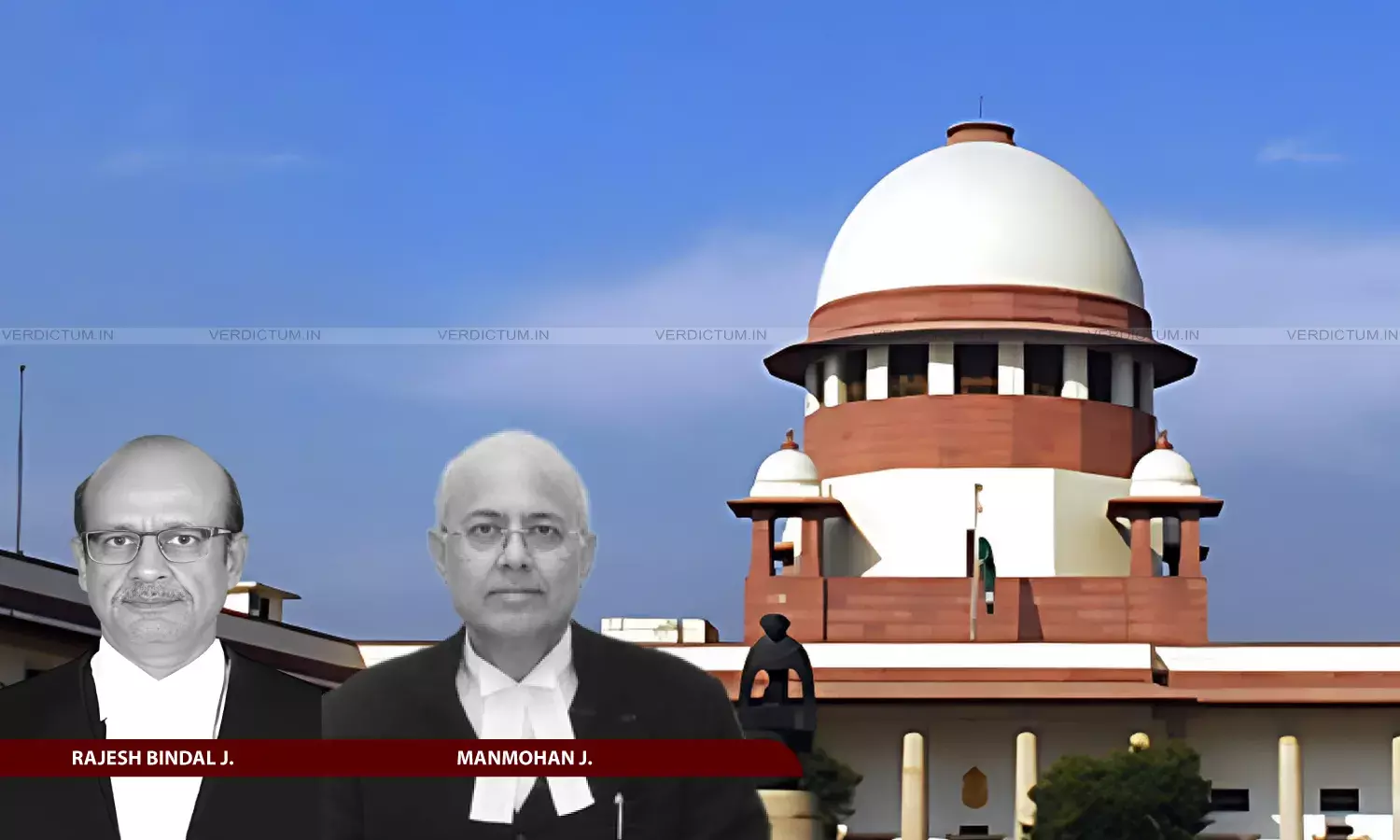Mere Deposit Of Embezzled Amount Won’t Absolve Employee Of Misconduct: Supreme Court Upholds Post Master’s Dismissal From Service
The appeal before the Supreme Court was filed against the order of the Rajasthan High Court whereby the penalty of removal imposed upon the respondent employee was set aside.

Justice Rajesh Bindal, Justice Manmohan, Supreme Court
While upholding the removal of a Branch Post Master from service and setting aside his reinstatement, the Supreme Court has observed that mere deposit of the embezzled amount will not absolve an employee of the misconduct. The Apex Court also held that ignorance of rules of procedure cannot be accepted.
The appeal before the Apex Court was filed against the order of the Rajasthan High Court whereby the penalty of removal imposed upon the respondent employee was set aside.
The Division Bench of Justice Rajesh Bindal and Justice Manmohan held, “It is a matter of chance that the embezzlement made by the respondent came to the notice of the authorities that action could be taken against him while restoring the amount to the post office. However, the fact remains that mere deposit of the embezzled amount will not absolve an employee of the misconduct. Relationship of a customer with a banker is of mutual trust.”
Additional Solicitor General Brijender Chahar represented the Appellant, while AOR Rajesh Kumar represented the Respondent.
Factual Background
The respondent was employed in the year 1998 as a Gramin Dak Sevak/ Branch Post Master. Certain irregularities were found during the course of annual inspection in the year 2011 regarding misappropriation of public funds, where the respondent, despite receiving an amount from the account holders, had not entered the same in the books of accounts, though the passbook of the account holders had been stamped. Chargesheet was served upon the respondent, and the Inquiry Officer submitted his report, finding that the charges against the respondent stood proved. The respondent was given a due opportunity hearing and was removed from service.
Aggrieved against the aforesaid order, the respondent preferred a statutory appeal, which was dismissed. The respondent’s Writ Petition before the High Court was allowed vide the impugned order.
Reasoning
The Bench took note of the fact that during the course of inquiry, the respondent was given due opportunity of hearing. While trying to explain the discrepancies, the respondent admitted the guilt. The amount embezzled by him had already been deposited in the accounts of the account holders. He prayed for forgiveness while reassuring that no such mistake would occur in the future.
The Bench noticed that the respondent had stamped the passbooks of the account holders but did not make respective entries in the books of accounts maintained in the post office, despite the fact that he had received the amount from the account holders. When caught, he deposited the amount. The Bench found that the documents clearly established the factum of embezzlement. The passbooks of the account holders were stamped with the receipt of the amount, with no corresponding entries in the books of accounts maintained in the post office.
The Bench refused to accept the respondent’s explanation that, on account of ignorance of the Rules, the passbooks of the account holders were stamped. “He had been in service for about 12 years. Ignorance of rules of the procedure with so much experience cannot be accepted. There was no defect or error pointed out in the course of inquiry. The High Court had travelled beyond its jurisdiction in trying to explain the admission of the respondent which was nothing else but an afterthought”, it stated.
Allowing the appeal, the Bench set aside the impugned order of the High Court. “The punishment imposed upon the respondent is upheld”, it concluded.
Cause Title: Union of India v. Indraj (Neutral Citation: 2025 INSC 1313)
Appearance
Appellant: Additional Solicitor General Brijender Chahar, Advocates Karan Chahar, Piyush Beriwal, Pallav Mongia, Dhruv Sharma, AOR Amrish Kumar
Respondent: AOR Rajesh Kumar, Advocates Dhiraj Kumar Sammi, Krishan Kant Kumar

